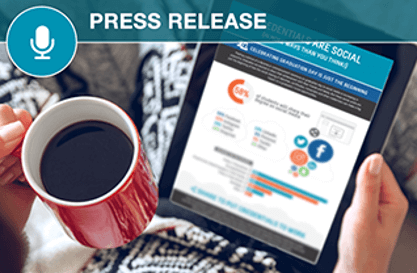
Parchment News
The Next 5 Years of Digital Credentialing
We use cookies to help you navigate efficiently and perform certain functions. You will find detailed information about all cookies under each consent category below.
The cookies that are categorized as "Necessary" are stored on your browser as they are essential for enabling the basic functionalities of the site. ...
Necessary cookies are required to enable the basic features of this site, such as providing secure log-in or adjusting your consent preferences. These cookies do not store any personally identifiable data.
Functional cookies help perform certain functionalities like sharing the content of the website on social media platforms, collecting feedback, and other third-party features.
Analytical cookies are used to understand how visitors interact with the website. These cookies help provide information on metrics such as the number of visitors, bounce rate, traffic source, etc.
Performance cookies are used to understand and analyze the key performance indexes of the website which helps in delivering a better user experience for the visitors.
Advertisement cookies are used to provide visitors with customized advertisements based on the pages you visited previously and to analyze the effectiveness of the ad campaigns.
Other cookies are those that are being identified and have not been classified into any category as yet.

July 8, 2021 — GAINESVILLE, Fla. — Quottly [now Parchment] powers interinstitutional course discovery, registration and equivalency to help institutions scale through comprehensive course and program sharing
The Idaho State Board of Education has partnered with Quottly [now Parchment], the largest and most comprehensive course and program sharing platform empowering the “Collaboration Movement” in higher education, to create a statewide digital campus that expands course and program offerings for all Idahoans. As part of the state’s Online Idaho initiative, public institutions are now able to align course discovery and registration experiences by combining system-wide class schedules, transfer rules, integrated student information systems (SIS) and one-click registration.
“Each of Idaho’s eight public postsecondary institutions has a rich array of online courses and programs supported by faculty who are exceptionally skilled in online instruction,” said Dr. Jonathan Lashley, Associate Chief Academic Officer at the Idaho State Board of Education. “After teaching and learning went fully remote due to the pandemic, we realized that our institutions could both consolidate and improve access to learning opportunities for Idahoans by partnering with Quottly [now Parchment] to build a comprehensive, easy-to-navigate platform for enrolling in the fully online courses.”
Quottly [now Parchment] is a fully configurable solution that works with institutions’ existing frameworks and processes to improve operations and bridge inequities in technology and support across the various participating institutions. All of Idaho’s public colleges and universities deployed the platform to streamline experiences for students seeking fully online educational experiences. Through seamless SIS integration with the unique computing environment of each campus, Quottly [now Parchment] has enabled Idaho’s online program management and reporting to benefit statewide.
“The pandemic served to reinforce the urgent, ongoing need for institutions to meet new student demands across multiple learning channels,” said Alicia Policinski, Chief Executive Officer at Quottly [now Parchment]. “These challenges call for a significant shift in strategy around the idea of collaboration and the development of deeper partnerships with peer institutions. University systems like Idaho’s are welcoming the opportunity to create efficient, flexible and easy online opportunities for students to achieve their educational and career goals through course and program sharing.”
With Quottly [now Parchment], Idaho’s institutions were able to benefit from improvements in:
“Quottly’s [now Parchment’s] suite of technical solutions prioritize the student experience without upending our existing workflows and administrative processes,” said Dr. Lashley. “As higher education institutions navigate times of crisis as well as calm, interinstitutional collaboration is imperative for improving student success outcomes and addressing institutional pain points.”
